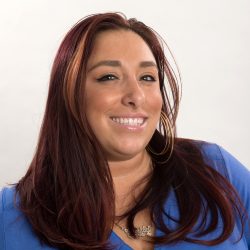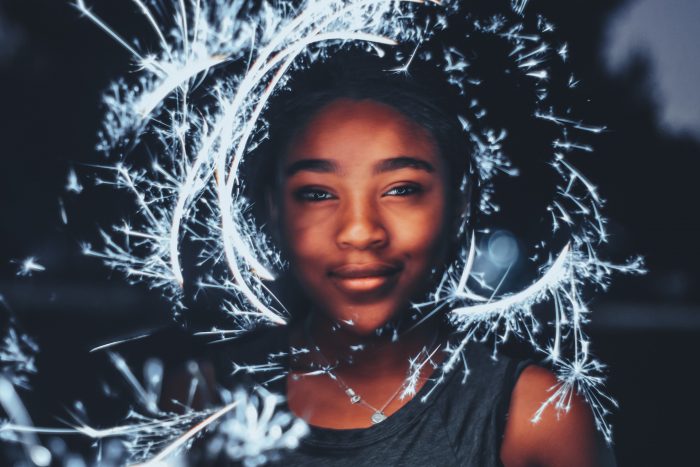Surviving R. Kelly and Showing Up for Youth of Color
by Camila Rojas-Pineiro // July 19, 2019
“That Could Have Been Me”
I was 13 when I went to my first concert ever: R. Kelly’s Down Low Top Secret Tour. LL Cool J, XScape, and Solo opened, but what I remember is looking up at R. Kelly lit up on stage, wishing I was up there too—as either the star, or the star’s girlfriend and protege. That could be me, I thought. I was already an accomplished dancer, and I could learn to sing. I was also in middle school, but so what? Aaliyah had only been 12 when she signed with Jive Records.
I thought I was grown, even though I was so, so young. I was, in other words, exactly the kind of young girl that R. Kelly targeted for sexual abuse for more than 25 years. Watching Dream Hampton’s documentary Surviving R. Kelly this February, I thought with a shudder, That could have been me.
Whether they’re victimized by an R&B superstar or the literal boy next door, so many young women and girls have experienced the same traumas.
After all, whether they’re victimized by an R&B superstar or the literal boy next door, so many young women and girls have experienced the same traumas. I’ve worked with survivor after survivor who, like R. Kelly’s victims, first met their abuser as young teen girls and had seen in him a love and a brighter future.
That’s the thing about R. Kelly’s abuse. The scale and scope of it is shocking, but the basics shouldn’t be surprising. It’s textbook sexual exploitation and domestic violence but taken to the extreme by the supercharged weapons—wealth, power, fame—R. Kelly used to coerce, control, and silence his victims. He thought he could get away with it because he had been getting away with it for decades.
Why Did It Take So Long for Survivors to Be Heard?
Things have moved so quickly in the last few months–with federal charges coming through just last week–that it can be easy to forget that survivors were speaking up the whole time. Why did it take so long for people to start listening to them?
Black and Latina girls are all too often seen as unworthy of trust or help no matter what’s been done to them.
I work every day with primarily Black and Latina women and girls, ones like me and like the girls R. Kelly targeted. The truth is, people didn’t listen to the survivors in part because they were young Black girls. And in turn, many survivors didn’t speak out, or gave up quickly, because they saw that they’d be ignored, attacked, and further traumatized if they did.
To this day, there’s an apathy to the pain of young girls of color. In contrast to the assumed innocence and value of middle-class white girls, Black and Latina girls are all too often seen as unworthy of trust or help no matter what’s been done to them. Black girls are falsely perceived as older and more sexually mature from an extremely young age, encouraging people to victim-blame, slut-shame, and dismiss or excuse sexual abuse and exploitation against them.
Showing Your Kids You’ll Hear Them
Black and Latina girls are told over and over that their pain doesn’t matter, and neither do they. It’s heartbreaking to see how the survivors I work with have absorbed these messages. It’s often hard at first for them to accept that I do believe them, that I know it was wrong, and that they deserve better.
Make it clear that no matter what situation they’re in, they can come to you for help
So how do we fix this? How do we show our children and youth that we’ll believe them and be there for them? Here’s my advice, based on what I am trying to do with my own kids and what the survivors I work with try to do with theirs: talk to your kids and listen to them.
- Don’t tell them not to be a “snitch” or a “tattle-tale.” Instead, let them know that they can always tell you about things that made them feel confused, uncomfortable, or afraid.
- Explain that they have the right to say “no” to touching, even hugs from relatives, because they’re in charge of their bodies. If you show them you have their backs, they can push back against unwanted touching or uncomfortable situations in the future without shame or fear.
- As they get into their preteen years, talk about red flags for abuse and about what they deserve in relationships. Make yourself available to answer their questions about sex and relationships. If you can’t, help them find another trustworthy adult to ask about these topics.
- Keep the lines of communication open. Check in, don’t interrogate. Show your interest in their lives, their friends, crushes, the places they hang out, the latest gossip at school. Watch out for warning signs: sudden drops in grades, dropping out of activities, changes in clothing styles.
- While this article focuses on the victimization of girls by men, remember that all kids can be targeted by abusers, regardless of their gender or sexual orientation. In fact, LGBTQ+ youth—particularly who have been rejected by their families—are especially vulnerable to abuse and exploitation. Affirming a child or teen’s stated sexual orientation and gender identity shows them that you trust and believe them about their experiences, making them more likely to come to you for help if they need it.
- Make it clear that you care above all that they’re safe and happy. Show them that no matter what situation they’re in, they can come to you for help. Make sure they know about resources they can access on their own too.
Showing Up for All Youth
If you do all of the above for the kids in your life—whether or not they’re your own children, relatives, or family friends—the child you save may not end up being your own. Not every teen has parent who can or will show up for them. Many youth have been taught that protecting their family means keeping quiet about the trauma they’re experiencing. If you can be a steady, non-judgmental presence for them, they might trust you to hear them and help them when they don’t feel like they have anyone else.
When someone is being abused or exploited, it’s the whole community’s business to get them help and make the violence stop.
If they do come to you, don’t do what most of America did to R. Kelly’s victims for decades. Don’t blame or shame them. Don’t make excuses for what was done to them. Don’t dismiss it as none of your business. When someone is being abused or exploited, it’s the whole community’s business to get them help and make the violence stop.
And if you can’t figure out what to do, call us. SafeLink (1.877.785.2020) is open 24/7, 365 days a year. We’re always here for you as an anonymous, confidential place to talk, ask questions, make safety plans, and connect to resources.
R. Kelly may finally be held accountable, but in every country and community, so many youth and adults are experiencing similar traumas. We can start to change that by believing survivors when they speak out and not letting abusers get away with their violence.
But we also need to affirm, loudly, that Black and Latina women and girls deserve better and that they and their experiences matter. And finally, we must make it clear to our friends and loved ones, especially our youth and children of color, that we’ll see when they’re struggling and hear them when they cry out for help—and then show up for them like we promised.

Camila Rojas-Pineiro is Casa Myrna’s Community Advocacy Program Manager as well as a mother of two and a lifelong dancer. She leads a team of advocates who specialize in “meeting survivors where they’re at” through outreach at Boston’s courts, community health centers, and more. Read an interview with a community advocacy specialist here!
Resources
For Parents, Caregivers, and Other Adults
- Katelyn Ewen, The Gottman Institute, “Beyond the Talk: Teaching Your Kids About Consent“,
- HealthyChildren.org (from the American Academy of Pediatricians), Teens: Sex & Dating
- The Polaris Project, “Sex Trafficking and LGBTQ Youth“
- National Domestic Violence Hotline, “Signs Your Teen May Be in an Abusive Relationship“
- Break the Cycle, “A Parent’s Guide to Teen Dating Violence“
- Futures Without Violence, “How to Talk to Teens about Dating Violence“
- PFLAG, “Our Children: Questions and Answers for Families of LGBTQ+ Young Adults“
- SafeLink, MA’s 24/7 Confidential Domestic Violence Hotline: 1.877.785.2020 (TTY: 1.877.521.2601)
- BARCC Resources List with sections for LGBTQ+ people, teens, and men & boys
For Teens (and Adults!)
- Love Is Respect: support, information and advocacy to young people who have questions or concerns about their dating relationships. Chat at www.loveisrespect.org, text LOVEIS to 22522*, or call 1-866-331-9474.
- Break the Cycle: resources to support young people 12 – 24 to build healthy relationships and create a culture without abuse
- Scarleteen: inclusive, comprehensive, and supportive sexuality and relationships info for teens and emerging adults
- LGBT National Youth Talkline: 1.800.246.7743 (open M-F 4pm-12am EST, Saturday 12pm-5pm EST)
- Trans Lifeline: peer support hotline run by and for trans people at 877.565.8860 (open 10am-4am EST)
- The Network/La Red: 24/7 partner violence hotline (617-742-4911) focused on LGBTQ+ survivors
- SafeLink, MA’s 24/7 Confidential Domestic Violence Hotline: 1.877.785.2020 (TTY: 1.877.521.2601)
- BARCC Resources List with sections for LGBTQ+ people, teens, and men & boys
- The Hotline: Dating Abuse Resources for Teens


